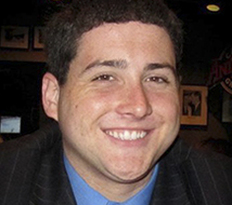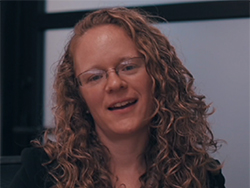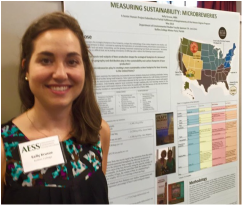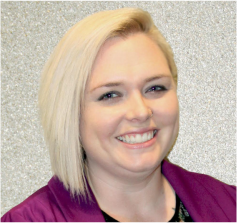the challenge: banking the unbankedTeller Jessica Schwarz Designs a Checking Account to Serve the Unbanked
|
|
Since she joined First Green Bank, Jessica's family has planted a vegetable garden and are raising chickens in their suburban backyard.
"We are here for people; we have a mission, not quotas."
"With the economy being what it is, everyone has been hit so hard, and so many people are living paycheck to paycheck," Jessica notes. "When you have to sit down with them and tell them they can’t open an account their self-esteem is hit.”Crafting a financial inclusion program for First Green Bank.
|
In March 2015, First Green Bank CEO Ken LaRoe attended the annual Global Alliance for Banking on Values Conference in Paris. He returned inspired by the many innovative financial inclusion products and services offered by member banks, and determined that First Green Bank would formulate a strategy tailored to the needs of the unbanked in his own Central Florida community. According to the FDIC almost 28 percent of Americans are either under- or unbanked, and an astounding 68 million are without a basic checking account. It occurred to Ken that his own bank was not only failing to address the problem but was actually contributing to it. “I thought about our own operations and how we routinely run a potential customer’s social security number in ChexSystem and if it shows any loss to another bank we immediately reject them,” he says. “I realized we had to develop an account for these people that would build in safeguards for them and ourselves. I floated the idea to my coworkers and the next day Jessica Schwarz, a teller at our Mt. Dora branch, came to me with a whole proposal on how to do just that.”
Jessica explains what motivated her to put forward her idea for the Be Green Special”Tee” Checking account: “Working both the teller line and account opening side there are so many who come in on a daily basis you would love to be able to open an account for but you can’t because of their history,” she reports. “It happens more frequently than one would think. I would say maybe 3 out of 10 who come in would be on the ChexSystem list as having had a closed account at another bank. When Ken came up with an idea to have an inclusion account I thought this is the time to do it." "With the economy being what it is, everyone has been hit so hard, and so many people are living paycheck to paycheck," Jessica notes. "When you have to sit down with them and tell them they can’t open an account their self-esteem is hit.”
Jessica’s Be Green Special”Tee” account targets those who have been reported to ChexSystem but whom the bank deems an acceptable risk. “You would definitely have to go into situational statuses, how did they get on ChexSystem.” she reasons. “Did they just have a hiccup, is it something where they lost their job or a stolen identity issue, or is it someone that had four reports and couldn’t tell you why?” The account would also be offered to those with special needs. “We have several individuals who come in who are in assisted living because they are disabled for some reason but they can still work and make small wages,” Jessica explains. “They have paychecks or they need a debit card to purchase their food to go to the movie and activities.” Working students between 16 and 18 would also be eligible for the account. The Special”Tee” account would offer completely free checking with no minimum balance, a free debit card, and one-time overdraft forgiveness for online bill paying. However, as a safeguard to the bank, no overdraft would be offered on the debit card and the account holder would be offered free cashier’s checks rather than personal checks. However, with her time-pressed customers in mind, Jessica says she has been trying to think of a way they can avoid having to wait in line for their cashier’s check. “Maybe we could generate an email address for them to request a cashier’s check ‘payable to.’ and they could pick it up right away at a the teller window or the drive through. We could speed it up for them and make it more of a convenience,” she suggests. Jessica researched other bank offerings of so-called “second chance” accounts and feels that First Green Bank’s will be more competitive and more viable for the customers being targeted. Other nationally chartered banks in the area offer accounts that either charge a monthly fee of $15 or more, or require a minimum balance. “You have all walks of life come through our door and sometimes they don’t have an extra $15 a month for a service fee but they still need the checking account,” says Jessica. Jessica’s promotional plan for the account includes a special event at bank branches that would include face-painting, hotdogs, and a T-shirt giveaway. “A lot of people complement staff on their First Green Bank t shirts on casual Friday,” she notes. “So I thought we could offer a T-shirt specially made just for these new customers.” She also suggests as part of the promotion that the bank make a donation to a national not-for- profit for each account opened. “We do things for the local community through various fundraising events and the First Green Foundation,” says Jessica. “But my thought was to donate to a broader foundation that is more worldwide rather than just our community. I would hope it would have an appeal to people coming in. |
"We see this new account as our way of being there for people in our community who are paycheck to paycheck." |
We see this new account as our way of being there for people in our community who are paycheck to paycheck. So why not donate to a foundation trying to do better things for people all over the world.”
Jessica says First Green Bank encourages her to contribute her ideas to improve services and product offerings, something she didn’t necessarily experience at her previous banking job: “Ken gives us ideas to run with, he gives you a platform whereas in most banks even if you had an idea you would have no one to give it to or to whom you would direct it.” The First Green Bank ethos has influenced her life outside of work as well. “Before I joined I wasn’t very well-versed in being green or living green,” she reports. “But since I have become so my family has begun to compost, we have our own garden with fresh fruits and vegetables, and we have our own chickens, so we have our own fresh eggs and poultry. |
Jessica's family is now composting, and growing fresh fruits and vegetables.
Working at the bank has really opened our eyes to living a more sustainable lifestyle.”
|
Working at the bank has really opened our eyes to living a more sustainable lifestyle.”Jessica says she looks forward to the day when she can offer a Be Green Special”Tee” checking account when a qualifying, previously unbanked customer walks through the door: “To be able to say to someone we can offer you something, we can help you here, they will walk out the door happier and with a more optimistic attitude at a time when they are feeling pretty vulnerable.”
|
Hopefully, she also notes, as these customers attain more financial sustainability they will graduate to other banking services, including mortgages and credit cards that are income generators for the bank. All part of the long-term strategy of a regenerative, holistic values bank.
|
No personal checks and the debit card overdraft opt out minimizes the risk to the bank as it assumes the administrative expense associated with these customers. But beyond simply wanting to do the right thing for previously unbanked members of the community, Jessica says, First Green Bank will still make a profit from this product because it creates a new customer base. For one thing, the requirement that the customer must pick up the cashier’s check at the bank branch will create more brand recognition and good will. “If you have someone coming in the bank running errands they might be with a friend,” Jessica suggests. “ That generates curiosity and puts us out in the community more, and we get more people referencing us and complementing our services.”
|
more on creating a holistic value banking culture:
|







